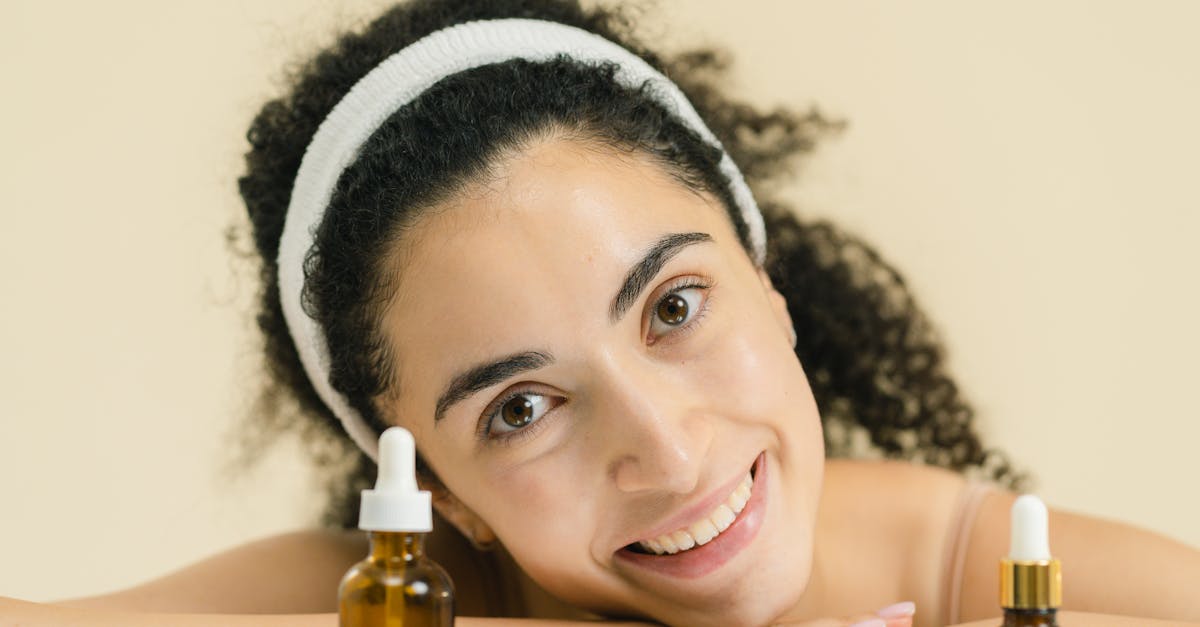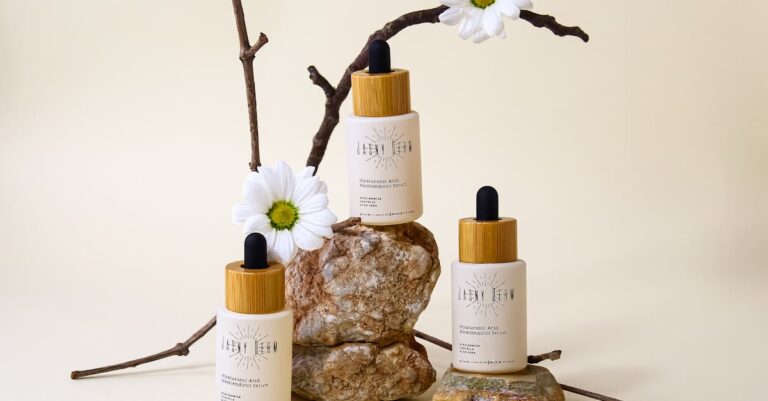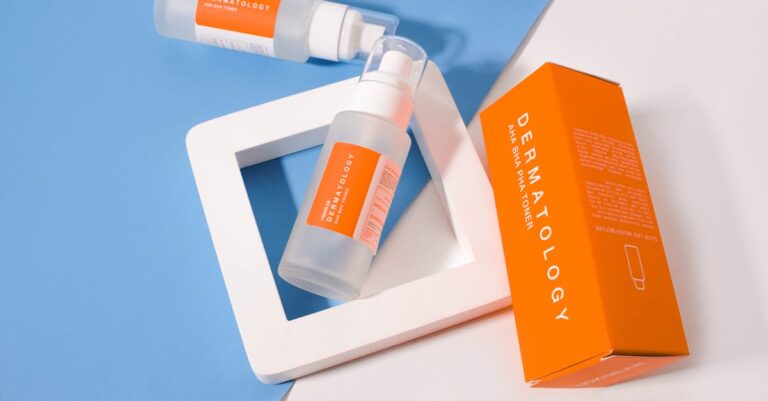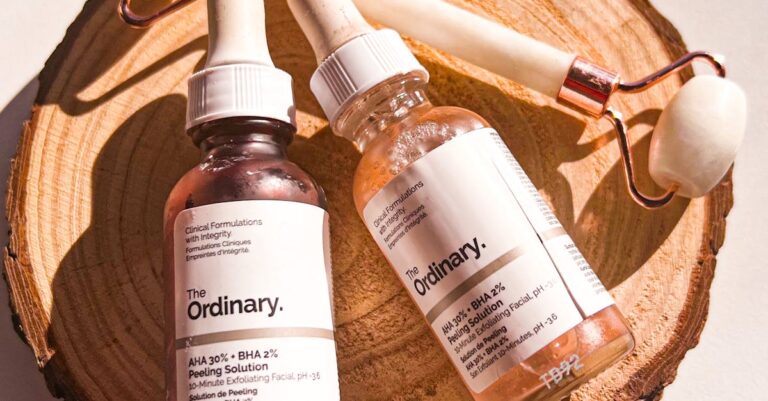In the ever-evolving world of skincare, peptides have emerged as a powerhouse ingredient promising firmer, healthier, and younger-looking skin. But what exactly are peptides, and why are they gaining so much attention in skincare formulations?
Peptides are short chains of amino acids—the building blocks of proteins like collagen and elastin. These proteins are essential for maintaining skin’s structure, elasticity, and firmness. As we age, collagen production naturally declines, leading to sagging skin, wrinkles, and a loss of radiance. Peptides, when applied topically, signal the skin to produce more collagen and repair itself, making them a sought-after ingredient in anti-aging and skin-repairing products.
Beyond anti-aging benefits, peptides can enhance skin hydration, strengthen the skin barrier, and even help reduce inflammation. Unlike harsh actives like retinoids or acids, peptides tend to be gentler, making them suitable for all skin types, including sensitive skin.
In this article, we will explore the science behind peptides, their different types, benefits, and how to use them effectively in your skincare routine.
Understanding Peptides: Structure & Function
To truly appreciate the role of peptides in skincare, it’s important to understand what they are at a molecular level and how they function in the skin.
What Are Peptides?
Peptides are short chains of amino acids that serve as the fundamental building blocks of proteins like collagen, elastin, and keratin—all of which are essential for maintaining skin structure, strength, and elasticity. These proteins keep the skin firm, smooth, and youthful.
Proteins like collagen are long and complex, making it difficult for them to penetrate the skin when applied topically. Peptides, on the other hand, are much smaller and can more easily be absorbed, allowing them to effectively signal the skin to repair and rejuvenate itself.
How Peptides Function in Skincare
Peptides work by sending signals to the skin cells, instructing them to perform specific functions, such as increasing collagen production, improving moisture retention, or reducing inflammation. Here’s a breakdown of how they contribute to skin health:
- Stimulating Collagen Production – Some peptides act as messengers that trigger fibroblast cells to produce more collagen, helping to maintain skin firmness and elasticity.
- Enhancing Skin Barrier Function – Peptides support the skin’s natural protective barrier, preventing moisture loss and shielding against environmental damage.
- Reducing Wrinkles and Fine Lines – By boosting collagen and elastin synthesis, peptides help diminish the appearance of fine lines, improving skin texture.
- Aiding in Skin Repair and Healing – Certain peptides assist in cell regeneration and wound healing, making them beneficial for post-inflammatory hyperpigmentation and scars.
- Anti-Inflammatory Properties – Some peptides help calm irritation and redness, making them useful for sensitive or acne-prone skin.
Since different peptides perform different functions, skincare formulations often contain specific types of peptides to target particular skin concerns. In the next section, we’ll explore the most common types of peptides used in skincare and their unique benefits.
Types of Peptides in Skincare
Not all peptides work the same way. In skincare, different types of peptides serve different functions, from stimulating collagen production to reducing muscle contractions that cause wrinkles. Below are the four main categories of peptides used in skincare products and their benefits.
1. Signal Peptides (Collagen Boosters)
Function: Signal peptides act as messengers, instructing skin cells to produce more collagen, elastin, and other structural proteins. These peptides help improve skin firmness, elasticity, and overall texture.
Example:
- Palmitoyl Pentapeptide-4 (Matrixyl) – One of the most well-known peptides in anti-aging skincare, it stimulates collagen production to reduce fine lines and wrinkles.
Best For:
- Anti-aging
- Loss of firmness
- Fine lines and wrinkles
2. Carrier Peptides (Skin Repair & Nourishment)
Function: Carrier peptides transport essential minerals (like copper and magnesium) to skin cells, aiding in wound healing, skin repair, and enzyme function. These peptides help the skin regenerate and maintain a youthful appearance.
Example:
- Copper Tripeptide-1 (GHK-Cu) – A powerful skin-repairing peptide that helps with wound healing, reduces inflammation, and boosts collagen and elastin synthesis.
Best For:
- Skin barrier repair
- Post-acne or wound healing
- Improving skin texture
3. Neurotransmitter-Inhibiting Peptides (Wrinkle Relaxers)
Function: These peptides work similarly to Botox by temporarily blocking nerve signals that cause muscle contractions. By relaxing facial muscles, they reduce the appearance of expression lines and wrinkles.
Example:
- Acetyl Hexapeptide-8 (Argireline) – Often called “Botox in a bottle,” this peptide helps smooth dynamic wrinkles caused by repeated facial expressions.
Best For:
- Crow’s feet, forehead lines, and frown lines
- Preventing deep expression wrinkles
4. Enzyme-Inhibiting Peptides (Protective & Anti-Aging)
Function: These peptides slow down the breakdown of collagen and elastin by inhibiting enzymes that degrade these proteins. This helps preserve skin firmness and elasticity over time.
Example:
- Soy and Rice Peptides – These natural peptides help prevent the degradation of collagen, often found in eye creams to reduce puffiness and dark circles.
Best For:
- Preventing premature aging
- Reducing sagging and loss of elasticity
Which Type of Peptide is Right for You?
- For fine lines and wrinkles → Signal peptides + Neurotransmitter-inhibiting peptides
- For skin healing and repair → Carrier peptides
- For prevention of collagen loss → Enzyme-inhibiting peptides
Since different peptides target different skin concerns, many skincare products combine multiple peptides for maximum effectiveness.
Benefits of Peptides in Skincare
Peptides have gained popularity in skincare for their ability to improve skin health and appearance in multiple ways. Here are the key benefits of incorporating peptides into your routine:
1. Stimulates Collagen Production
One of the most significant benefits of peptides is their ability to boost collagen synthesis. Since collagen levels decline with age, leading to wrinkles and sagging skin, peptides help replenish collagen stores, making the skin firmer and more youthful.
2. Improves Skin Elasticity
Elastin, another crucial protein in the skin, provides resilience and bounce. Peptides help strengthen elastin fibers, preventing skin from becoming loose or saggy.
3. Reduces Fine Lines and Wrinkles
By promoting collagen and elastin production, peptides help smooth out fine lines and wrinkles, making them a key ingredient in anti-aging skincare. Some peptides, like Argireline, also relax facial muscles, further reducing expression lines.
4. Enhances Skin Barrier Function
Peptides support the skin’s natural protective barrier, which is responsible for locking in moisture and defending against environmental damage. A strong skin barrier reduces dryness, irritation, and sensitivity.
5. Boosts Hydration and Moisture Retention
Some peptides improve the skin’s ability to retain moisture, reducing dryness and dehydration. They work alongside other hydrating ingredients like hyaluronic acid to enhance skin plumpness.
6. Helps Repair and Heal Skin
Carrier peptides, like Copper Tripeptide-1, promote skin regeneration and wound healing, making them beneficial for those dealing with post-acne marks, scars, or compromised skin.
7. Soothes Inflammation and Redness
Certain peptides have anti-inflammatory properties, helping to calm redness and irritation, which is particularly useful for sensitive or acne-prone skin.
8. Provides Antioxidant Protection
Some peptides act as antioxidants, helping to neutralize free radicals that contribute to premature aging caused by UV exposure and pollution.
Why Choose Peptides Over Other Anti-Aging Ingredients?
- Gentler than retinol – Unlike retinoids, peptides do not cause irritation, peeling, or dryness, making them ideal for sensitive skin.
- Safe for daily use – Peptides can be used both morning and night without concerns about sun sensitivity.
- Works well with other ingredients – Peptides pair well with hyaluronic acid, ceramides, and antioxidants, making them a versatile addition to any routine.
How Peptides Compare to Other Anti-Aging Ingredients
Peptides are a powerful addition to skincare, but how do they stack up against other popular anti-aging ingredients like retinol, hyaluronic acid, and vitamin C? Let’s break down the differences.
1. Peptides vs. Retinol: Collagen Production & Skin Renewal
| Peptides | Retinol |
| Stimulates collagen production indirectly by signaling skin cells. | Increases collagen production by accelerating cell turnover. |
| Gentle on the skin; rarely causes irritation. | Can cause dryness, peeling, and irritation, especially for sensitive skin. |
| Suitable for all skin types, including sensitive skin. | Requires skin adaptation and should be introduced gradually. |
| Can be used day and night. | Best used at night due to photosensitivity. |
Verdict: Peptides are a gentler alternative to retinol, making them ideal for sensitive skin or those who cannot tolerate retinoids. However, retinol provides faster cell turnover, making it more effective for acne and deep wrinkles.
2. Peptides vs. Hyaluronic Acid: Hydration & Plumping
| Peptides | Hyaluronic Acid (HA) |
| Stimulates collagen production to improve firmness over time. | Hydrates and plumps the skin by attracting moisture. |
| Repairs and strengthens the skin barrier. | Temporarily improves hydration levels but does not repair skin. |
| Helps reduce wrinkles by boosting structural proteins. | Smooths out fine lines by increasing skin volume with moisture. |
Verdict: Peptides and hyaluronic acid work well together—peptides repair and strengthen, while HA hydrates and plumps. Combining both provides long-term and immediate benefits.
3. Peptides vs. Vitamin C: Brightening & Anti-Aging
| Peptides | Vitamin C |
| Supports collagen production without irritation. | Boosts collagen production and brightens skin tone. |
| Helps repair the skin barrier. | Protects against UV damage and reduces pigmentation. |
| Gentle and well-tolerated by most skin types. | Can cause irritation in sensitive skin, especially at high concentrations. |
Verdict: If your goal is collagen production and overall skin repair, peptides are an excellent choice. If you want to fade dark spots and boost radiance, vitamin C is more effective. Both can be used together for complementary benefits.
4. Peptides vs. Niacinamide: Skin Barrier & Anti-Inflammation
| Peptides | Niacinamide |
| Stimulates collagen and elastin production. | Strengthens the skin barrier and regulates oil production. |
| Helps smooth wrinkles and improve firmness. | Reduces redness, minimizes pores, and evens out skin tone. |
| Provides deep skin repair benefits. | Has antioxidant properties that fight environmental damage. |
Verdict: Niacinamide is better for reducing redness, oil control, and hyperpigmentation, while peptides excel at boosting firmness and elasticity. They work well together in an anti-aging routine.
Which One Should You Use?
- For Wrinkle Reduction & Firmness → Peptides + Retinol
- For Hydration & Plumpness → Peptides + Hyaluronic Acid
- For Brightening & Collagen Boost → Peptides + Vitamin C
- For Barrier Repair & Redness → Peptides + Niacinamide
Since peptides pair well with most active ingredients, they can be seamlessly added to an anti-aging routine.
How to Use Peptides in Skincare
To get the most out of peptides, it’s important to use them correctly. Here’s a guide on incorporating peptides into your skincare routine for maximum effectiveness.
1. Best Peptide-Based Skincare Products
Peptides can be found in various skincare formulations, including:
- Serums – Highly concentrated and penetrate deeply into the skin. Best choice for anti-aging benefits.
- Moisturizers – Help lock in hydration while delivering peptides. Ideal for strengthening the skin barrier.
- Eye Creams – Target fine lines, puffiness, and dark circles.
- Face Masks – Provide an intensive boost of peptides for deep hydration and firming effects.
Best option: Peptide serums are the most effective because they allow deeper penetration and direct interaction with skin cells.
2. When to Apply Peptides in Your Routine
Peptides should be applied after cleansing and toning but before heavier creams and oils. Here’s how to layer them properly:
Morning Routine:
- Cleanser
- Toner (optional)
- Vitamin C serum (if used)
- Peptide serum
- Moisturizer
- Sunscreen (essential for protecting collagen)
Night Routine:
- Cleanser
- Exfoliating toner (if used)
- Retinol (if using, apply before peptides)
- Peptide serum
- Moisturizer
Tip: Peptides can be safely used with most ingredients, but for best results, apply them directly to clean skin before heavier products.
3. Ingredients That Work Well with Peptides
Peptides are versatile and pair well with many other active ingredients:
- Hyaluronic Acid – Enhances hydration and plumps the skin.
- Niacinamide – Strengthens the skin barrier and improves skin tone.
- Ceramides – Help lock in moisture and support skin repair.
- Antioxidants (Vitamin C, E, Green Tea) – Protect against environmental damage.
4. Ingredients to Avoid Mixing with Peptides
While peptides are generally stable, some combinations can reduce their effectiveness:
- Strong Acids (AHAs, BHAs) – These exfoliants may break down peptides, reducing their potency.
- High-Concentration Vitamin C – Some forms of vitamin C can destabilize peptides.
- Copper Peptides + Vitamin C or Retinol – These combinations may cause irritation or cancel out benefits.
Tip: If using acids or strong actives, apply them at a different time of day (e.g., acids in the evening and peptides in the morning).
5. How Long Does It Take to See Results?
Peptides work gradually, so consistency is key.
- Short-term effects (2-4 weeks): Improved hydration and smoother skin.
- Medium-term effects (4-8 weeks): Reduced fine lines and improved firmness.
- Long-term effects (3-6 months): Noticeable wrinkle reduction and enhanced elasticity.
Tip: Peptides don’t provide instant results, but with daily use, they help build stronger, healthier skin over time.
Scientific Research & Effectiveness of Peptides in Skincare
Peptides are widely used in anti-aging skincare, but what does science say about their effectiveness? Let’s explore the research behind peptide-based skincare products.
1. Do Peptides Really Work?
Multiple studies support the effectiveness of peptides in improving skin texture, reducing wrinkles, and boosting collagen production. However, the results depend on the type of peptide used, its concentration, and how consistently it is applied.
2. Key Scientific Studies on Peptides
Peptides Stimulate Collagen Production
A study published in the International Journal of Cosmetic Science found that palmitoyl pentapeptide-4 (Matrixyl) significantly increased collagen production and reduced wrinkle depth after 8 weeks of use.
Copper Peptides Improve Skin Healing
Research in Biochimica et Biophysica Acta showed that copper tripeptide-1 enhances wound healing, skin renewal, and collagen synthesis, making it useful for anti-aging and post-acne scar treatment.
Neurotransmitter-Inhibiting Peptides Reduce Wrinkles
A study on Acetyl Hexapeptide-8 (Argireline) found that it reduces facial wrinkle depth by 30% after 4 weeks by inhibiting muscle contractions (similar to Botox).
Peptides Strengthen the Skin Barrier
A 2021 study in Dermatologic Therapy reported that peptide-infused moisturizers improved skin hydration, elasticity, and overall barrier function after 4 weeks of use.
Conclusion: While peptides are not an overnight miracle, consistent use over 8–12 weeks can significantly improve skin texture, reduce wrinkles, and boost collagen.
3. Are All Peptide Products Effective?
Not all peptide formulations are equally effective. Here’s what affects their potency:
- Peptide concentration: Higher concentrations generally yield better results. Look for products where peptides are listed near the top of the ingredient list.
- Stable formulation: Peptides degrade quickly when exposed to air and light, so choose serums in air-tight, opaque packaging.
- Combination with other ingredients: Peptides work best when combined with hydrators (hyaluronic acid), antioxidants (vitamin C, E), and ceramides.
4. Limitations of Peptides
- Slow results – Peptides take weeks to show visible changes, unlike Botox or fillers.
- Not all peptides penetrate deeply – Some peptides work only at the surface level unless formulated for deeper absorption.
- Quality matters – Many skincare products use low concentrations of peptides, making them less effective.
Tip: Choose clinically tested peptide formulations and be patient—peptides work best with long-term consistency.
Myths & Misconceptions About Peptides in Skincare
Despite their growing popularity, peptides are often misunderstood. Let’s debunk some common myths about peptides in skincare.
Myth #1: Peptides Work Like Botox
Truth: While certain peptides (like Argireline) can help reduce expression lines by relaxing facial muscles, they do not work as deeply or as dramatically as Botox. Botox paralyzes muscles, while peptides only reduce muscle contractions slightly.
Myth #2: More Peptides = Better Results
Truth: Using a product with too many different peptides doesn’t always increase effectiveness. Some peptides work best in specific combinations or at optimal concentrations. A well-formulated product with a few clinically backed peptides is more effective than one with dozens of low-quality peptides.
Myth #3: Peptides Can Replace Retinol or Vitamin C
Truth: Peptides support collagen production, but they do not replace retinol’s cell turnover effects or vitamin C’s antioxidant and brightening benefits. For the best anti-aging results, peptides should be combined with other proven ingredients.
Myth #4: Peptides Work Instantly
Truth: Unlike hyaluronic acid, which instantly hydrates and plumps the skin, peptides work gradually by stimulating collagen production over time. Most users see visible improvements after 6–12 weeks of consistent use.
Myth #5: All Peptides Are the Same
Truth: Different peptides have different functions—some boost collagen, others heal skin, and some reduce wrinkles. Choosing the right peptide for your skin concern is key to getting results.
Myth #6: Peptides Are Only for Anti-Aging
Truth: While peptides are best known for their anti-aging benefits, they also help with:
- Strengthening the skin barrier (great for sensitive skin)
- Calming inflammation (useful for acne-prone skin)
- Enhancing hydration and moisture retention
Bottom Line: Peptides are a valuable skincare ingredient, but they work best when combined with a well-rounded routine and used consistently.
How to Choose the Right Peptide Product for Your Skin Type & Concerns
Not all peptide products are created equal. To maximize benefits, it’s important to choose the right type based on your skin type and specific concerns.
1. Best Peptides for Different Skin Concerns
| Skin Concern | Recommended Peptides | Best Product Type |
| Fine lines & wrinkles | Palmitoyl Pentapeptide-4 (Matrixyl), Acetyl Hexapeptide-8 (Argireline) | Serum, moisturizer |
| Loss of firmness | Copper Tripeptide-1, Palmitoyl Tripeptide-1 | Serum, cream |
| Dry or dehydrated skin | Rice Peptides, Soy Peptides | Moisturizer, serum |
| Sensitive skin & redness | Oat Peptides, Palmitoyl Tripeptide-5 | Serum, cream |
| Dark circles & puffiness | Dipeptide-2, Tetrapeptide-5 | Eye cream |
| Acne & post-acne scars | Copper Peptides, Palmitoyl Oligopeptide | Serum, spot treatment |
Tip: If you have multiple concerns, look for multi-peptide formulations that combine different types for maximum benefits.
2. Choosing the Right Peptide Product Based on Skin Type
- For Oily & Acne-Prone Skin → Lightweight peptide serums (avoid heavy creams that can clog pores).
- For Dry Skin → Peptide-infused moisturizers with hydrating ingredients like hyaluronic acid.
- For Sensitive Skin → Fragrance-free peptide creams with calming peptides.
- For Mature Skin → Peptide-rich serums & night creams that target wrinkles and sagging.
3. What to Look for on the Ingredient Label
- Peptides should be listed near the top – If peptides appear at the end of the ingredient list, the concentration may be too low to be effective.
- Look for supporting ingredients – Peptides work best when paired with hydrators (hyaluronic acid), antioxidants (vitamin C, E), and ceramides.
- Avoid products with alcohol or strong acids – These can break down peptides and reduce their effectiveness.
Tip: Peptides are most effective in serums and creams, as cleansers and wash-off products don’t give them enough time to penetrate the skin.
Common Peptide-Infused Skincare Products & Recommendations
To make choosing easier, here’s a curated list of well-formulated, peptide-rich skincare products that have earned high marks from dermatologists and skincare enthusiasts alike.
1. Best Overall Peptide Serum
The Ordinary “Buffet” / “Multi-Peptide + HA Serum”
- Peptides included: Matrixyl 3000, Matrixyl Synthe’6, Argireline, Syn-Ake
- Why it’s great: Affordable, well-formulated multi-peptide serum with hyaluronic acid for hydration.
- Best for: All skin types, especially those beginning an anti-aging routine.
2. Best Peptide Serum for Wrinkles & Firmness
NIOD Copper Amino Isolate Serum 3 1:1
- Peptides included: Copper Tripeptide-1
- Why it’s great: High-performance serum that targets aging at a cellular level.
- Best for: Mature skin, skin repair, and visible loss of elasticity.
3. Best Budget-Friendly Option
Inkey List Peptide Moisturizer
- Peptides included: Dipeptide, Palmitoyl Tetrapeptide-7
- Why it’s great: Lightweight, nourishing formula that supports barrier function without breaking the bank.
- Best for: Beginners, young skin, oily/combination types.
4. Best Peptide Eye Cream
Drunk Elephant C-Tango Multivitamin Eye Cream
- Peptides included: 8 peptides including Palmitoyl Tetrapeptide-7, Palmitoyl Tripeptide-1
- Why it’s great: Combines peptides with antioxidants and brighteners to reduce puffiness and dark circles.
- Best for: Tired eyes, fine lines, puffiness.
5. Best Luxury Peptide Cream
Alastin Restorative Skin Complex
- Peptides included: TriHex Technology® (a proprietary blend of peptides)
- Why it’s great: Clinically backed, supports skin recovery post-procedures, firms and smooths.
- Best for: Advanced anti-aging needs and post-treatment skin.
6. Best K-Beauty Peptide Serum
MISSHA Time Revolution Night Repair Ampoule 5X
- Peptides included: Peptide complex + fermented ingredients
- Why it’s great: Cult-favorite that boosts radiance, firmness, and hydration overnight.
- Best for: Dull, tired, or stressed skin types.
7. Best Peptide Mask
Medik8 Hydr8 B5 Intense Mask
- Peptides included: Multi-peptide complex
- Why it’s great: Delivers a boost of hydration and skin-plumping action with added hyaluronic acid.
- Best for: Occasional hydration boost or travel recovery.
Pro Tip: Introduce peptide products slowly and use consistently for at least 6–12 weeks to evaluate their true impact. Pair with SPF and antioxidants for maximum long-term skin support.
Conclusion & Final Thoughts on Peptides in Skincare
Peptides have rightfully earned their place as one of the most effective, science-backed ingredients in modern skincare. Whether you’re looking to smooth wrinkles, firm sagging skin, support barrier repair, or simply future-proof your complexion, peptides offer targeted, gentle, and long-term benefits.
Key Takeaways:
- Peptides are short chains of amino acids that act as messengers, triggering the skin to produce more collagen, elastin, and other key proteins.
- There are many types of peptides, each offering unique benefits—from collagen boosting (Matrixyl) to muscle-relaxing (Argireline) to healing (Copper peptides).
- Peptides are gentle, well-tolerated, and ideal for layering with other actives like niacinamide, hyaluronic acid, and antioxidants.
- Consistency is key—results build gradually over weeks or months with regular use.
- For best results, choose products with clinically proven peptides, proper packaging (air-tight, opaque), and complementary ingredients.
Who Should Use Peptides?
- Beginners starting an anti-aging routine
- Sensitive skin types who can’t tolerate stronger actives
- Anyone looking to improve skin firmness, texture, and barrier function
Peptides are not a replacement for your entire routine, but they’re an exceptional addition—think of them as skin’s support crew, helping your complexion stay resilient, smooth, and strong over time.




